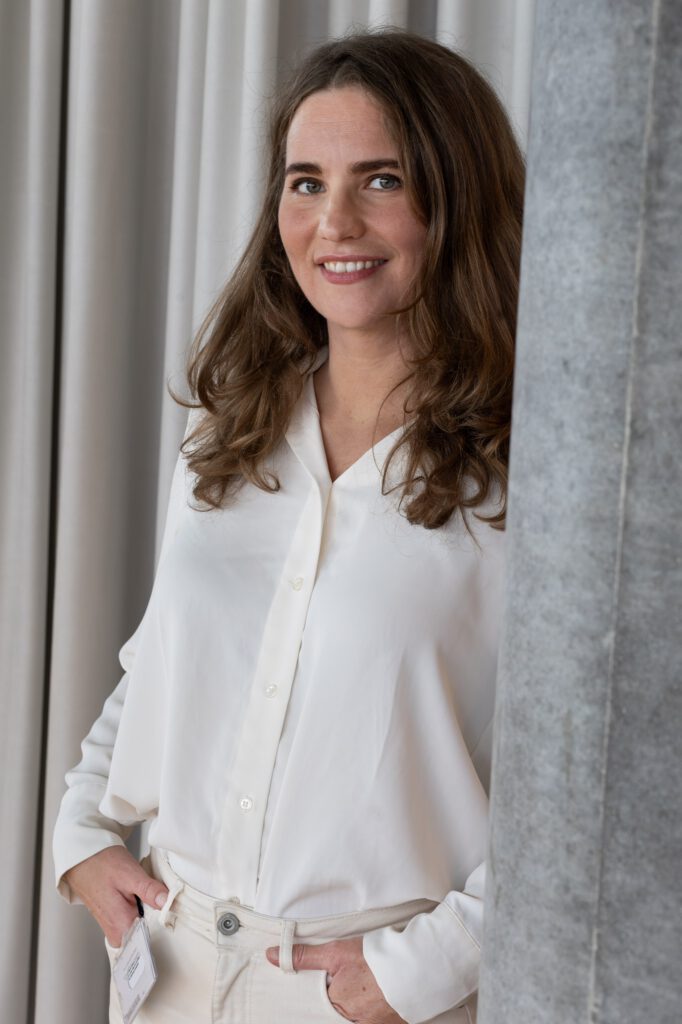
29 July 2024
Olena Sushkova: “A significant takeaway from my time in the Austrian professional environment is the importance of fostering a friendly workplace culture”
Olena Sushkova, Professional Integration HUB 1.0 program participant (ERSTE Foundation).
- City in Ukraine where you lived before the full-scale invasion (forced relocation): was born in Simferopol, Crimea (Ukraine), and spent the eight years prior to the full-scale invasion living in Bucha, Kyiv region
- Specialization: fiscal policy, taxation, local development, accounting and audit, risk management, and sustainable development
PROFESSIONAL BACKGROUND
Before the full-scale invasion, I held the position of Associate Professor at the State Tax University in Irpin. My responsibilities included teaching courses on customs, conducting research projects on tax administration and control for the State Fiscal Service of Ukraine and the Ministry of Finance of Ukraine, and supervising PhD students. Additionally, I was actively engaged in the business sector, providing tax advice and accounting services.
The State Tax University is working to restore its educational activities to pre-Invasion levels. However, many campuses have been destroyed, and several others remain damaged. Many students and university staff members have been relocated, with a significant portion now studying abroad. Numerous students have been accepted into universities in Germany, Austria, and Poland, where they are pursuing Bachelor’s and Master’s degrees.
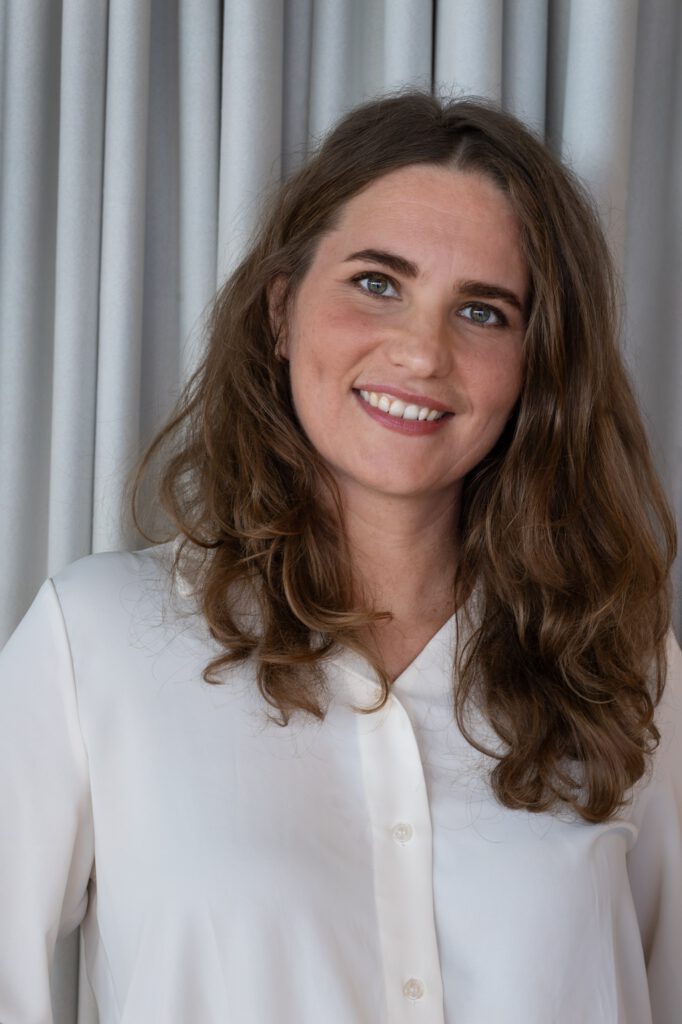
One of the most significant challenges of my career in Ukraine was defending my PhD thesis. Despite that, I am grateful for that period as it provided me with extensive learning opportunities, allowed me to acquire new skills, and enrich my experience. Moreover, it afforded me the chance to collaborate with brilliant experts in my field.
While working within the state education system, I encountered significant bureaucracy and experienced competition among colleagues. However, Ukraine offers abundant opportunities for well-educated and experienced individuals, particularly for those who are proactive and motivated.
FORCED EMIGRATION
My house is situated where Hostomel meets Irpin, just a few kilometers from Antonov Airport, which is home to the world’s largest aircraft, the Mriya. The war started practically on my doorstep when the airport was attacked.
In April 2022, I relocated to Austria after being awarded a scholarship from the Austrian Academy of Sciences. My host institution is the Institute for Austrian and International Tax Law at WU (Vienna University of Economics and Business). Prior to arriving in Austria, I spent approximately a week in Poland. The previous year, my home Institute at the State Tax University, had collaborated with University of Third Age in Gromadce and Wroclaw University of Economics and Business, and our colleagues there assisted us in our relocation.
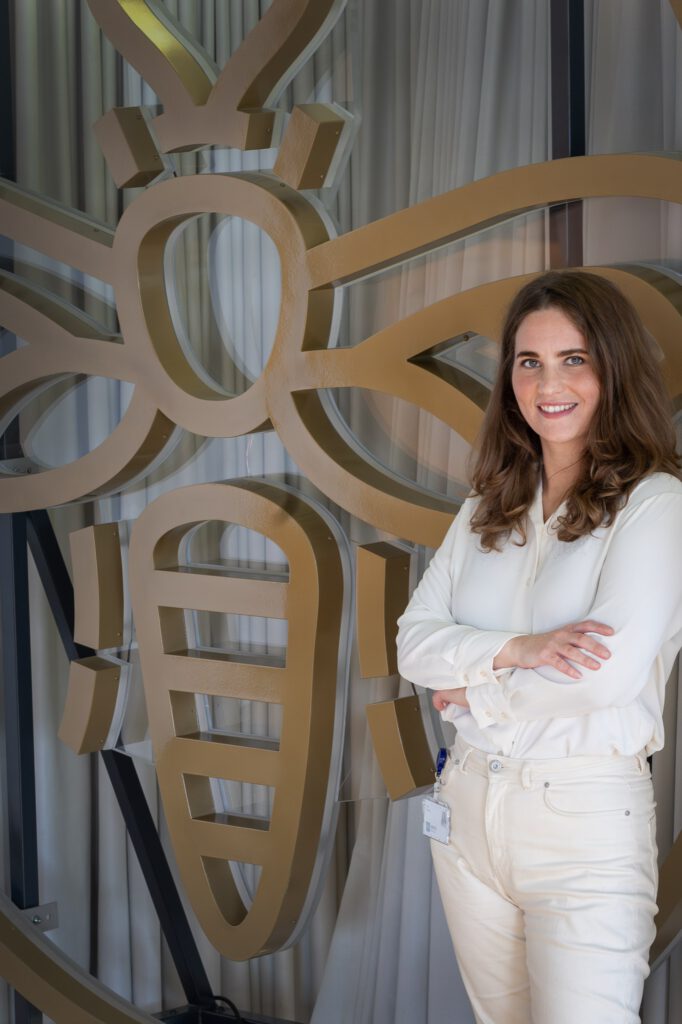
LIFE IN AUSTRIA
Living in Austria presented several challenges, with the foremost being the language barrier. Initially, navigating daily life proved difficult with everything in German. However, I was fortunate to meet many kind people who occasionally assisted me with German-related matters. One more thing to adapt to was getting used to shops and some public places being closed on Sundays.
When it comes to employment, not knowing German and lacking “Vitamin B” (professional connections) are significant obstacles to obtaining a good position in Austria. Additionally, my Ukrainian diplomas were not readily accepted. Without a degree from a European or globally recognized university, achieving a similar position to what I had in Ukraine proved challenging.
One of the most surprising aspects of life in Austria was the banking system. I was taken aback by how they still rely on plastic banking cards, which are mailed to you several weeks after signing a contract with a bank. This seemed quite outdated compared to the advanced banking support in Ukraine. On the positive side, I was incredibly impressed with Austria’s logistics, especially in Vienna. I knew about the electronic schedule boards at transport stations, but I never imagined a city’s logistics could be so well-organized that you can get from one end of the city to another in an hour. The public transport system is also worthy of admiration for its safety and availability, even at night.
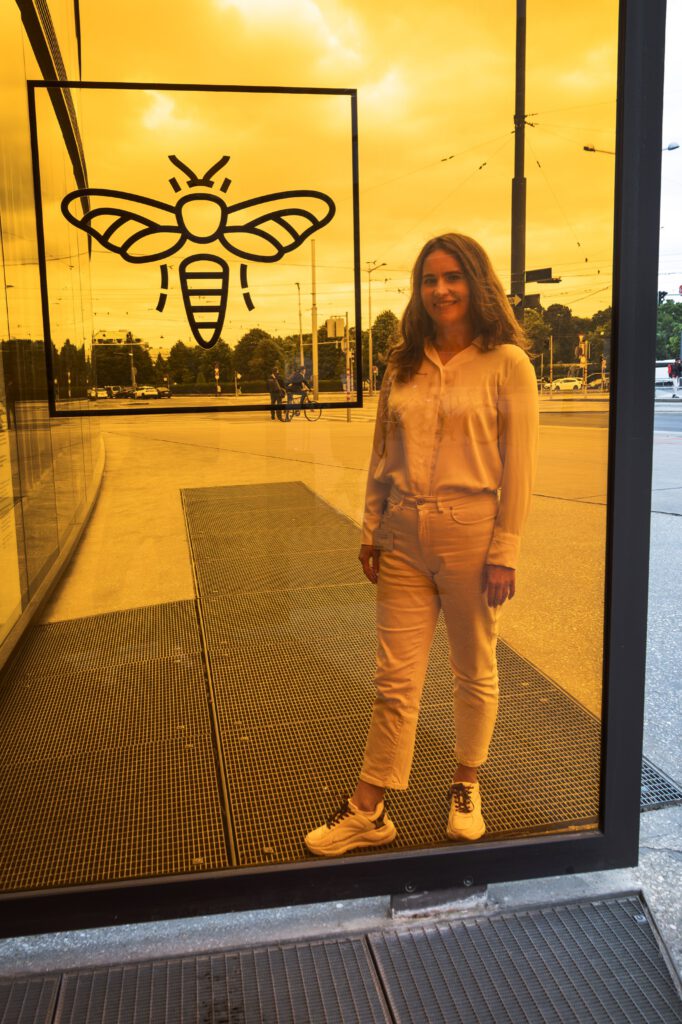
Living in Vienna has been encouraging and supportive for me. I find joy in walking around the city. Visiting museums, traveling, and meeting new people have broadened my outlook.
To all Ukrainians living abroad, I recommend to be patient and persistent. If you face 100 rejections, remember that the 101st might be your success. Never give up!
PROFESSIONAL INTEGRATION HUB
I discovered the Professional Integration HUB program through a link shared by a friend, and its objectives perfectly aligned with my career aspirations. It was an ideal opportunity for me to take my first step into the professional world in Austria, and discovering the program was truly a decisive moment for me.
During the three-month internship, I not only strengthened my confidence but also significantly broadened my professional horizons. I now have a structured plan for my future steps and a clearer vision of my professional growth journey.
Considering my love to organizing things, I used various digital tools to carefully plan out our projects. Additionally, I proposed the strategy for using social media and business platforms to help create a vibrant community among everyone involved in the project.
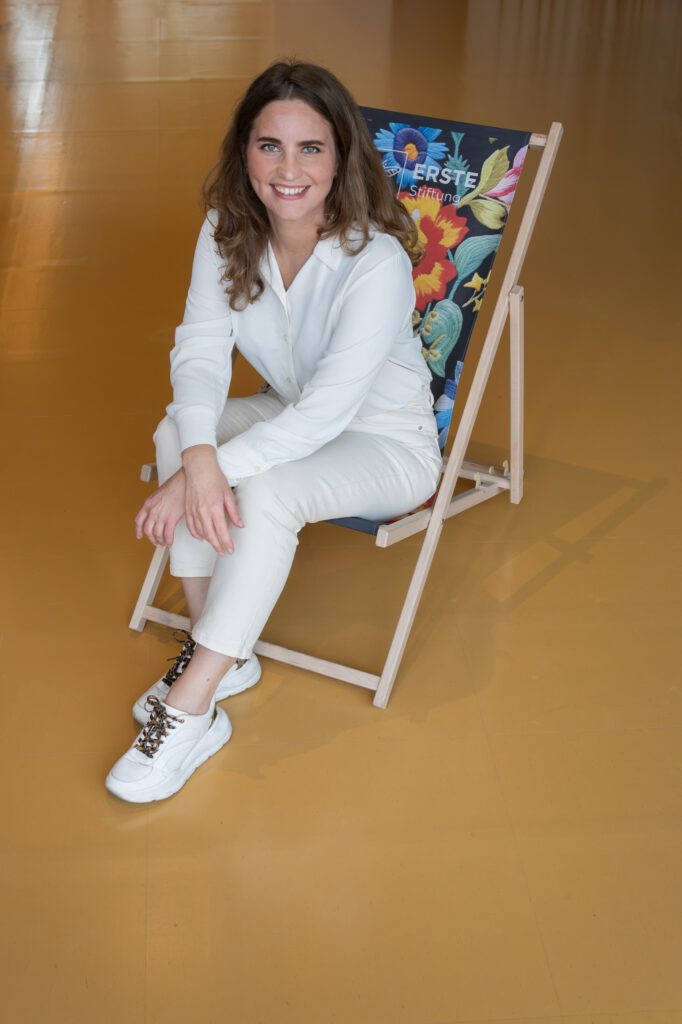
Comparing the work processes in Ukraine and Austria, what stood out to me most was the congenial atmosphere among colleagues, the absence of stressful pressure, and the emphasis on respecting one another’s time and efforts. Unlike Ukraine, workplaces in Austria tend to have a more flat hierarchy and less strict distinctions based on positions.
Thinking back on my internship, two moments left a profound impact on me. The first was a visit to Caritas, where I was deeply moved by the staff’s steadfast positivity in the face of heartbreaking stories. The second was a visit to Salzburg Kunstverein, where creativity, art, and inspiration saturated every part.
A significant takeaway from my time in the Austrian professional environment is the importance of fostering a friendly workplace culture. I learned that it’s possible to achieve remarkable results without micromanagement, to conduct meetings without excessive pressure, and even to celebrate colleagues’ achievements with sincere warmth and fellowship. Moreover, I came to appreciate the lunchtime culture, which promotes relaxation and socialization among colleagues.
One of the most valuable insights I acquired from the internship is the art of effective teamwork in a multicultural setting, coupled with the importance of maintaining a healthy work-life balance. Additionally, I acquired practical knowledge about funding applications, project prioritization, and organizational support processes. Engaging in study visits to prominent Austrian institutions enriched my understanding of their activities, structures, and challenges. Furthermore, I made progress in improving my German communication skills and feeling a sense of belonging within the by actively engaging in both professional and social interactions with colleagues.
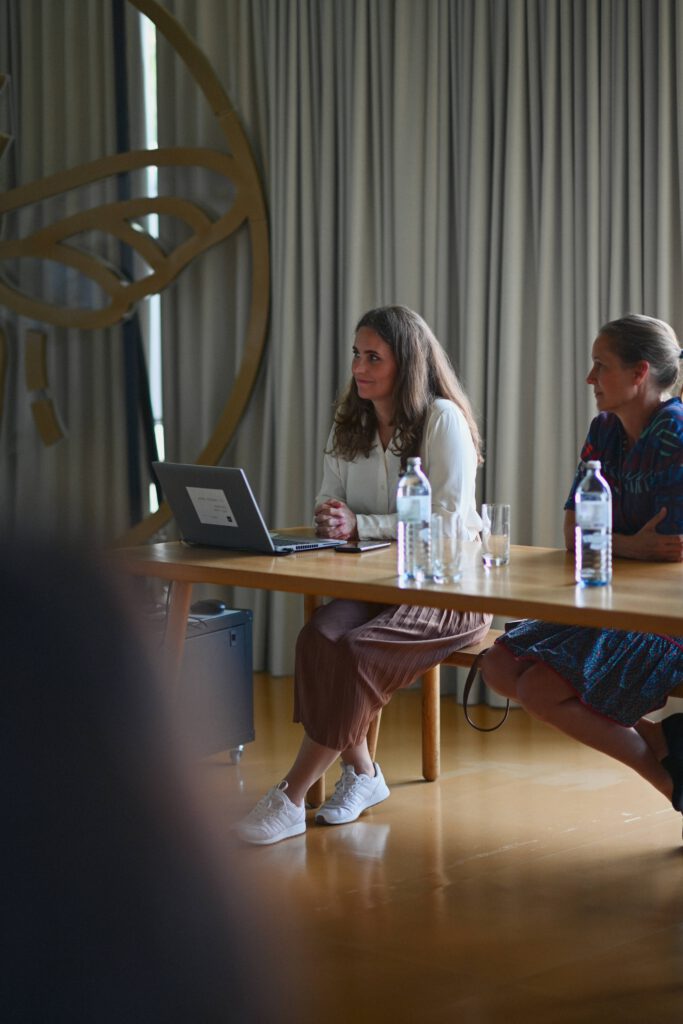
PLANS AFTER PARTICIPATING IN THE PROGRAM
I am thrilled to have my contract extended with the host organization. My time at ERSTE Foundation in Austria has been invaluable, providing me with deep insights into efficient project management, sustainable development, and the importance of international collaboration.
Collaborating closely with Ukrainian partners has given me a profound understanding of the current challenges facing Ukraine, especially in the preservation of cultural heritage and advancement of human capital. This experience has strengthened my commitment to addressing these challenges and contributing positively to Ukraine’s progress. Therefore, I believe that the Professional Integration HUB project plays a crucial role in developing a new generation of Ukrainian professionals who are more qualified, adaptable, and knowledgeable about working in both Ukrainian and European environments. These professionals can serve as change agents in Ukraine, fostering connections between European and Ukrainian communities and promoting Ukraine’s integration into the EU.
Through my internship, I have witnessed firsthand how international partnerships and networks can be leveraged to achieve project goals. Enhancing Ukraine’s capacity to form strategic international collaborations can open up new opportunities for funding, expertise, and shared resources, fostering growth and development across various sectors.
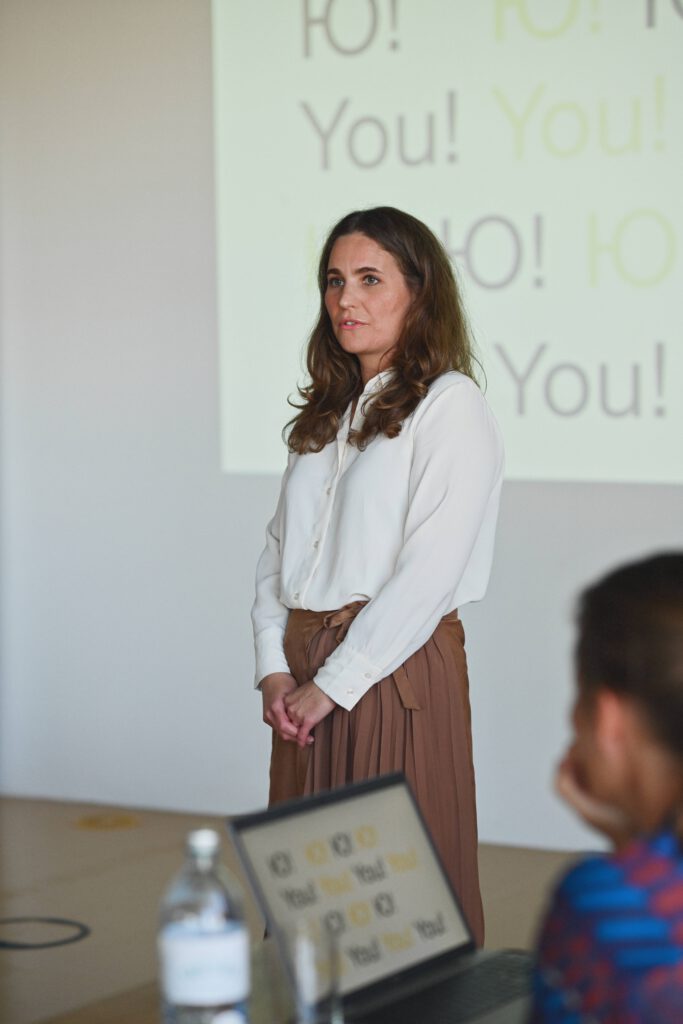
ERSTE Foundation’s focus on sustainable development and innovative green technologies is particularly relevant for Ukraine, especially in achieving energy independence and environmental protection. Equipping campuses with solar panels, as done by ERSTE Foundation, could help address environmental challenges and reduce reliance on non-renewable energy sources in Ukraine.
Additionally, ERSTE Foundation’s emphasis on employee well-being and continuous self-development serves as a valuable model for Ukraine. Practices such as providing rest zones and encouraging participation in language courses and other self-development activities during work hours could greatly benefit the Ukrainian workforce, improving productivity and ensuring professionals stay up-to-date with the latest knowledge and skills in their fields.
In summary, the knowledge and experiences gained through this project will be crucial in my efforts to contribute to Ukraine’s development. By fostering international collaborations and enhancing workforce skills, I strive to support the creation of a strong, forward-looking Ukrainian society integrated with Europe.